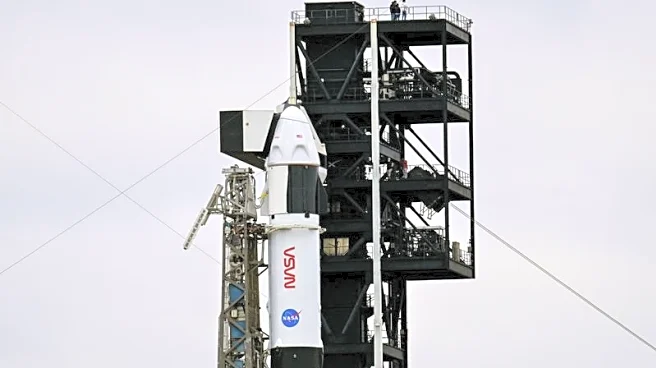What's Happening?
Hurricane Melissa has set a new record for the highest wind gust ever recorded by a dropsonde, an expendable instrument used to measure atmospheric conditions in hurricanes. The gust reached 252 mph as the dropsonde descended into the eye of the hurricane south
of Jamaica. This measurement surpasses previous records for wind speeds captured by similar instruments. The World Meteorological Organization (WMO) maintains official records of weather extremes, but currently does not include dropsonde measurements in its official listings. Despite this, the record is recognized as a significant achievement in meteorological data collection.
Why It's Important?
The record-setting wind gust in Hurricane Melissa highlights the advancements in meteorological technology and the importance of accurate data collection in understanding extreme weather events. Such measurements are crucial for improving hurricane forecasting and preparedness, potentially saving lives and reducing property damage. The data collected by dropsondes can provide insights into the dynamics of hurricanes, aiding scientists and meteorologists in developing better predictive models. This event underscores the ongoing need for investment in weather research and technology to enhance public safety and mitigate the impacts of natural disasters.
What's Next?
While the WMO does not currently include dropsonde data in its official records, the significance of this measurement may prompt discussions about updating the criteria for weather records. Meteorologists and researchers may advocate for the inclusion of such data to provide a more comprehensive understanding of atmospheric phenomena. Additionally, the success of the dropsonde measurement could lead to increased funding and support for similar technological advancements in meteorology. The data from Hurricane Melissa will likely be analyzed further to improve hurricane models and forecasting techniques.
Beyond the Headlines
The record wind gust recorded by Hurricane Melissa's dropsonde raises questions about the potential impacts of climate change on the frequency and intensity of hurricanes. As global temperatures rise, the energy available to fuel hurricanes increases, potentially leading to more powerful storms. This development may influence public policy and climate change mitigation strategies, as governments and organizations seek to address the root causes of extreme weather events. The event also highlights the critical role of international collaboration in weather research, as data from different regions contribute to a global understanding of climate dynamics.
















